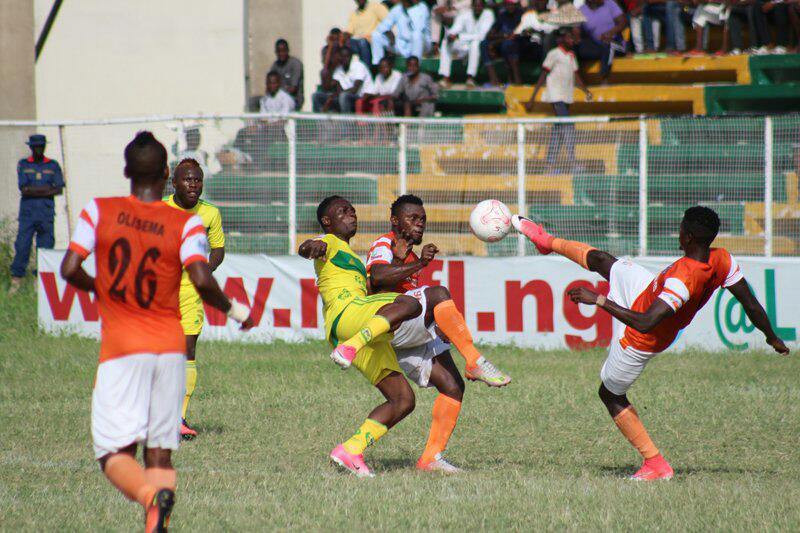A few days ago, the League Management Company (LMC) met with league owners and stakeholders to announce that it will crown Lobi Stars of Makurdi the 2018 Champions with more than 10 games left to play.
As the LMC explained later, it was merely applying its codified rules in a situation where a major football political crisis effectively stifled the completion of the season. But the reality is that the league, in spite of recent sponsorship gains, continues to be mired in mediocrity.
How can you take a league seriously when each season, without failure, there is squabble on what the designated opening day would be. Stunningly, there are multiple postponements of the opening week because of one complaint or the other from club owners.
If it isn’t about not being prepared, it is about not completing registration of players, or about an upcoming holiday. These are weak excuses advanced by planless administrators and eventually accepted by league organisers.
Or is it possible to take seriously a league that threatens action but fails to act against teams that continually refuse to compensate its football labour for months? Certainly, such failure to act encourages the continued flouting of league rules.
How can you take seriously a league where clubs refuse television coverage of their games because they do not want video capture of decisions taken in their favour by compromised match officials? Referees that are banned are quickly unbanned to continue their nefarious activities.
This is the league that is run as the premier tier in a country that produces some of the best players in Africa, if not the world.
The current decision to cut the season short did not address compensation of football labour in such a season, nor did it explain how sponsors would be compensated. Why should sponsors care about supporting such a business in the future? The uncertainties are just too many. Yet that is what the Nigerian premier league is. There is no way to sugar coat it.
Thus, while one understands the LMC citing its rules in calling off the league in mid-season and also understand that it had little choice, it must still be stated that there are too many events in this league that leave much to be desired. The decision to cut the season short does not help the league’s image, citing rules or no rules.
If the league wishes to be taken seriously it must work out these poor logistics and improve its undesirable image that has helped, to some extent, to drive spectators to the bars where they watch better organised foreign leagues on television. Who would blame them? Should they stick to the local league simply based on patriotism when there are too many shenanigans and problems ruining the league?
For a start, the league should develop a firm and stable timeline that defines its season, matching it appropriately with the scheduling of the Confederation for African Football’s (CAF) club competitions in which Nigerian clubs participate. Then it must start to take firm action against clubs and administrators who continually violate league rules and/or fail to continually compensate football labour. Those actions can be the little change that builds a better image and ensures that the league is taken seriously.









